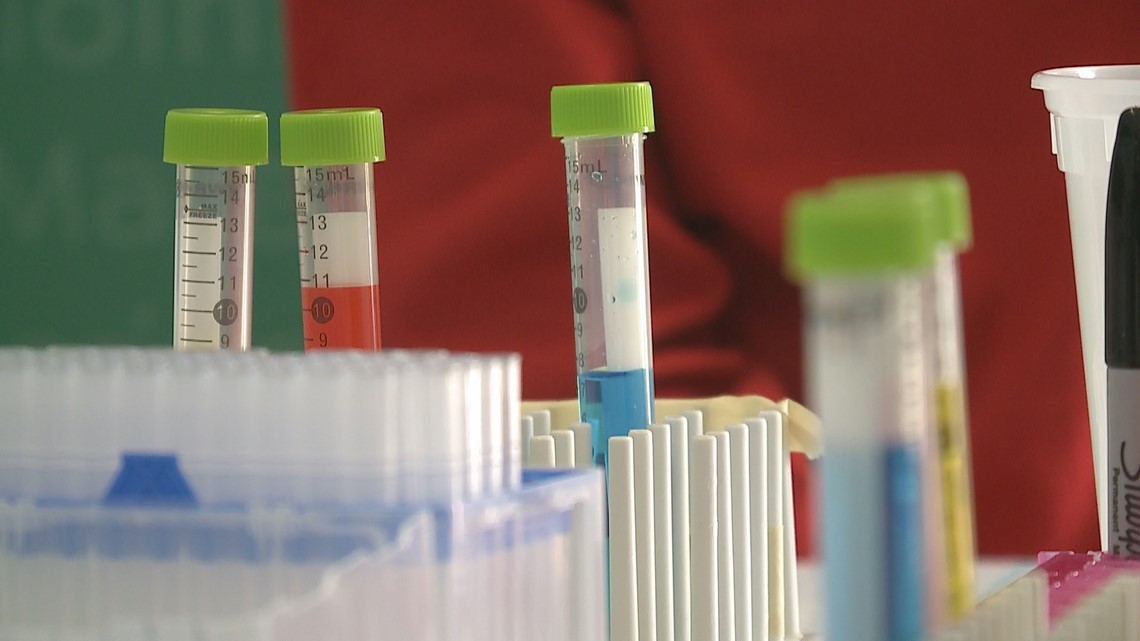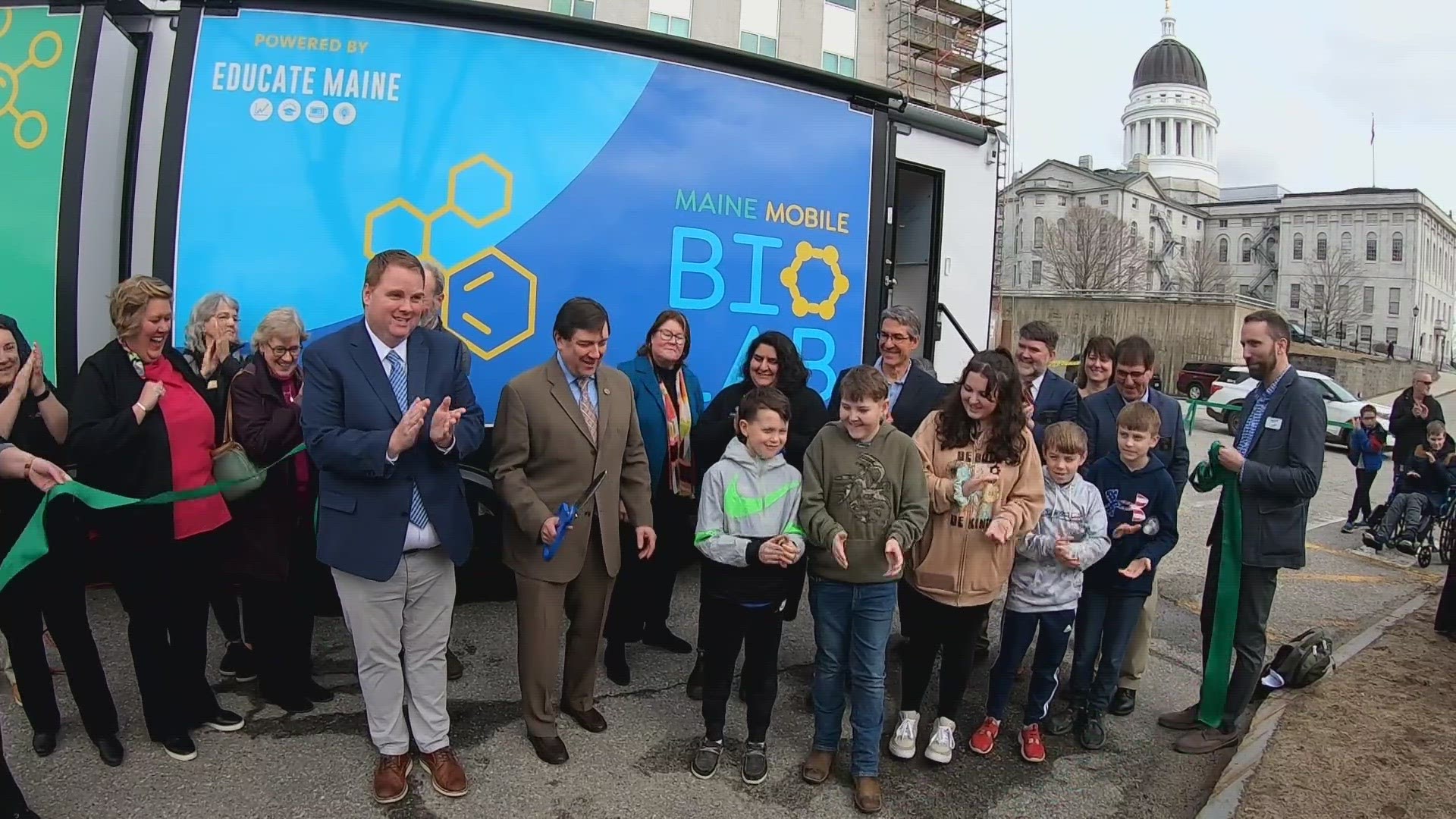AUGUSTA, Maine — If you think back to your middle school days, there was nothing quite like getting on a bus for a field trip.
For some Maine students, an educational field trip will soon come right to their school parking lot. Educate Maine's Mobile BIOLAB was unveiled Wednesday outside the State House in Augusta as a way to get more students interested in life sciences and STEM education.
The state-of-the-art lab is a traveling trailer that will allow up to 24 students to work on various experiments and activities.
“What we’ve heard from Maine students and Maine educators is that they want to have more STEM experiences," Educate Maine's Executive Director Jason Judd said. “We thought it was really important to take that feedback and design a project where [students] can learn more about the life sciences.”
According to the Bioscience Association of Maine, high-paying bioscience jobs have grown by 42% in the past five years. Right now, there are more than 9,000 life sciences jobs in the state. The Association, as well as the University of Maine System, the University of New England, the Roux Institute, and Learning Undefeated partnered for this initiative.
Several Maine school districts already have STEM labs, or STEM courses built into their high school curriculum. But Judd said this mobile lab will target more rural and smaller districts. Its first official stop will be in Fort Kent next week — after middle school students in China took part in a pilot program last week.
“We have a protocol that the students are expected to follow, to kind of help [them by] reading through a procedure taking their time, being methodical, recording your data," Heather Carlisle, the STEM educator for Educate Maine, said.
She demonstrated some of the activities students can take part in, like using a micropipette to transfer small amounts of liquids and using advanced microscopes.


“Getting them engaged and excited about science at this age, may inform what classes they take in high school," Carlisle added. “It may influence what internships they take or even what jobs they take early on in their career.”
As a former public school teacher, Carlisle added, she's also excited to work with other educators to find ways the new mobile lab can get them excited about the lessons and craft activities that specifically relate to what they're learning in the classroom.
Funding for the learning lab was made possible by state funds as well as federal dollars secured in the new Congressional Budget because of legislation introduced and sponsored by Sen. Susan Collins, R-Maine, and Angus King, I-Maine, according to an Educate Maine release.
At the state level, Senate President Troy Jackson, D-Allagash, sponsored a bill which became law that secured funding to explore the project through planning, curriculum development and startup costs, according to a release. Jackson also delivered remarks at Wednesday’s event highlighting the need for this learning resource.
“To me, this initiative is about leveling the playing field in education, opening up pathways to good-paying careers, closing gaps in our workforce and investing in an emerging sector of Maine’s economy. This is especially important in rural Maine," he said in a news release.

